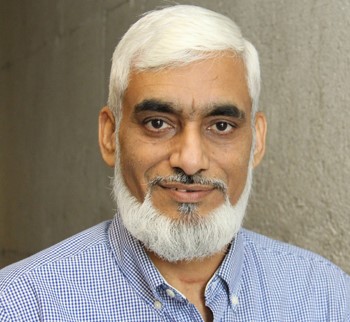
Exemplifying York University's global leadership in sustainability, Professor Hassan Qudrat-Ullah from the School of Administrative Studies in York's Faculty of Liberal Arts & Professional Studies (LA&PS) has set out to increase public understanding of the importance of sustainable energy – and its role in addressing global challenges such as climate change, energy security and environmental degradation – with his new book, Sustainable Energy: A Myth or Reality (Springer, 2024).
Deeply concerned about the growing misconceptions surrounding the topic, Qudrat-Ullah combatted falsehoods by publishing a comprehensive, evidence-based analysis.

"As an academic and researcher in the field of sustainable energy policy, I have witnessed the proliferation of myths that hinder progress toward a sustainable energy future," he said. "These myths often create confusion among policymakers, professionals and the general public, leading to resistance against necessary transitions to renewable energy sources."
In Sustainable Energy: A Myth or Reality, Qudrat-Ullah examines the intersection of technology, sustainability and policy to offer a balanced perspective that highlights both the challenges and opportunities in the field.
"I believe that by demystifying sustainable energy, we can empower readers to make informed decisions that contribute to a more resilient and eco-conscious future," he said.
The book emphasizes renewable energy sources like solar and wind, and draws on case studies to offer a deeper look at the practical applications of sustainable energy projects.
Beyond educating the general public, Sustainable Energy: A Myth or Reality speaks to students and teachers, researchers and professionals, policymakers and activists, and anyone with an interest in sustainable energy and its role in the collective future of humanity and the planet. Qudrat-Ullah hopes his book will serve as a catalyst for future research and innovation in the field and encourage a more critical examination of existing policies and practices.
"By engaging a diverse readership, I hope to foster a collective movement toward a more sustainable and resilient energy future."
